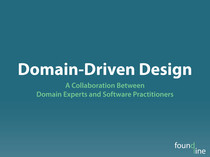The other day there was a discussion on the VAGUE mailing list about an open source and open standards bill (H.516) [PDF] recently introduced in the Vermont General Assembly (a.k.a. legislature). It’s technically an amendment to an existing act and has the following stated purpose:
This bill proposes to require the department of information and innovation to advise against the acquisition by a state agency of proprietary software or software that operates by means of proprietary protocols when acceptable functionality can be achieved with open source software and open standard protocols and to ensure that the expected total life-cycle costs of software are fully evaluated prior to acquisition.
Overall I see this as a positive move for the State of Vermont. It does not seem to put the requirement for open source and open standards ahead of the particular business needs at hand since it only “advise[s] against the acquisition by a state agency of proprietary software or software that operates by means of proprietary protocols when acceptable functionality can be achieved with open source software and open standard protocols.” However, Mitch Lieberman points out:
@BradleyHolt functionality does not directly = biz value IMHO, biz value needs to include ROI of functions, thus includes TCO
I agree with Mitch that the bill could do a better job of addressing not just functionality, but also return on investment (ROI) and total cost of ownership (TCO). These should be the primary considerations of any responsible organization in deciding what software to use. However, since it is the public’s money being used to purchase this software it is worth considering whether our resources are being used to further entrench proprietary software and standards, or whether we are instead enriching the public commons by supporting open source software and open standards.
In addition to the above, there are some details of the bill that demonstrate some possible misunderstandings of how open source software works. While it’s not anywhere in its text, the bill is described as being “An act relating to comparing the costs and benefits of downloading free open source software with purchasing proprietary computer software.” There are a couple of misconceptions in this one statement. First, cost should not always be the primary motivation behind using open source software: the freedoms it gives you are just as important. In fact, not all proprietary software costs money and not all open source software is available free of charge. Second, “downloading” is simply a means of distributing software. Proprietary software can often be downloaded. Open source software is sometimes distributed on a physical medium.
It’s not stated explicitly in the bill, but people sometimes think that if they release their own software under an open source license they are somehow giving up control of the licensed software project. While there are many benefits of giving up control (which are outside the scope of this blog post), it’s worth noting that you don’t have to. When you license your software you still own the copyright on that software. You can still do whatever you want with that software, including release it under a different license later. Once you accept outside contributions then you need to honor whatever license has been given to you be your contributors (unless they agree to transfer copyright to you, but this can be tricky). It’s your choice whether or not to accept those contributions in the first place. You are still completely in control (as long as you want to be) and have simply given others the possibility of benefiting from your work.




